Oral Surgery Made Simple – Gentle Care for a Comfortable Experience
The thought of oral surgery can bring up feelings of fear and anxiety, and this is normal. Whether it’s removing a tooth, addressing an infection, or another procedure, you might be worried about pain, recovery, or just the unknown.
Our approach to oral surgery is centered around you—your comfort, your concerns, and your peace of mind. We’re here to ensure that every step of the process is smooth, gentle, and focused on your well-being.
Book Your Appointment
You can use the form below and we will get back to you as soon as possible.
Oral Surgery Process – Your Comfort, Step by Step
Oral surgery doesn’t have to be a stressful or painful experience. Our team is dedicated to making sure you feel informed, comfortable, and supported from consultation to recovery. Let us help you take care of your dental health with care and compassion, so you can focus on healing and moving forward with confidence.
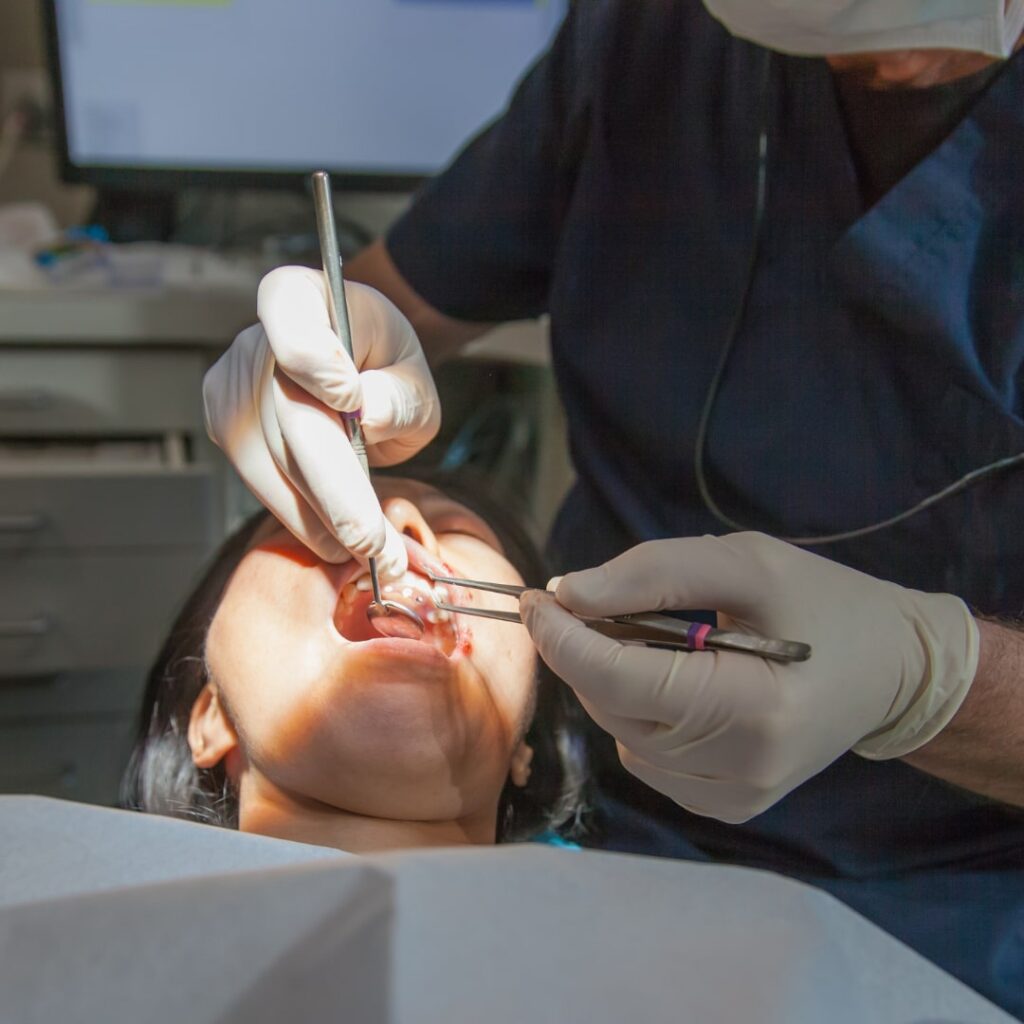
Step 1: Consultation and Detailed Planning – Understanding Your Needs
Before anything else, we take the time to get to know you and your specific situation. Whether you’re nervous about the procedure or have concerns about pain or recovery, we’re here to listen and provide clear, honest answers.
What to expect: A relaxed consultation where we carefully examine your dental issue and explain the procedure in detail. We’ll walk you through each step, explain why the surgery is needed, and answer any concerns you have about anesthesia, pain management, or recovery. Our goal is to make sure you feel fully informed and comfortable before moving forward.

Step 2: The Oral Surgery – Gentle and Painless
On the day of the surgery, our priority is your comfort. Whether it’s a simple tooth extraction or a more complex procedure, we ensure the process is as pain-free and smooth as possible.
What to expect: You’ll be given a local anesthetic or sedation (if needed) to make sure you don’t feel any pain during the procedure. We take a gentle approach to every surgery, making sure you’re comfortable throughout. Most patients are surprised by how quick and painless the process is, and we’ll be there to guide you through each step.
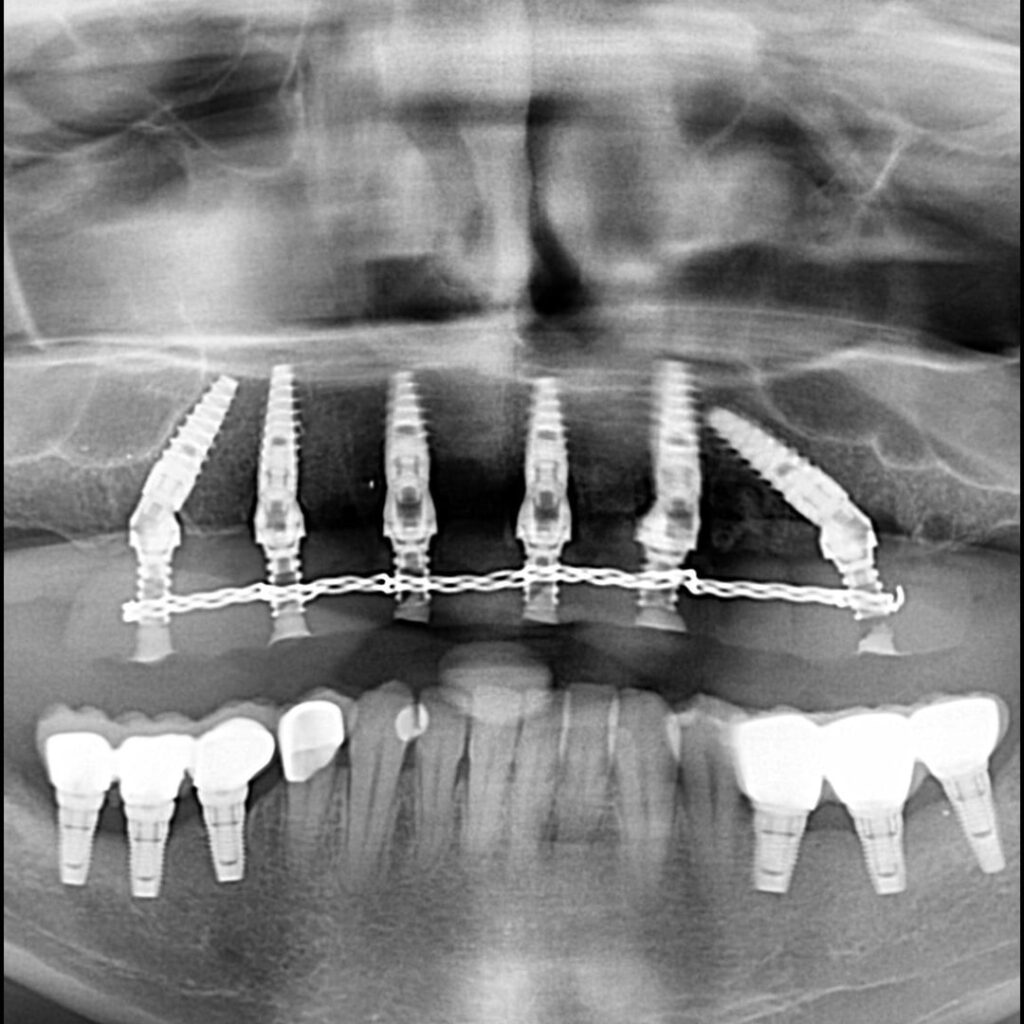
Step 3: Recovery and Aftercare – Healing with Ongoing Support
After the procedure, your healing and comfort remain our top priority. We’ll provide clear aftercare instructions and follow up to make sure everything is healing well.
What to expect: After your surgery, we’ll explain everything you need to know about caring for the treated area, managing any discomfort, and speeding up recovery. Any soreness should be minimal and temporary, and we’re always available if you have questions or concerns during the healing process. Our team will be with you for regular check-ups to ensure a smooth recovery.
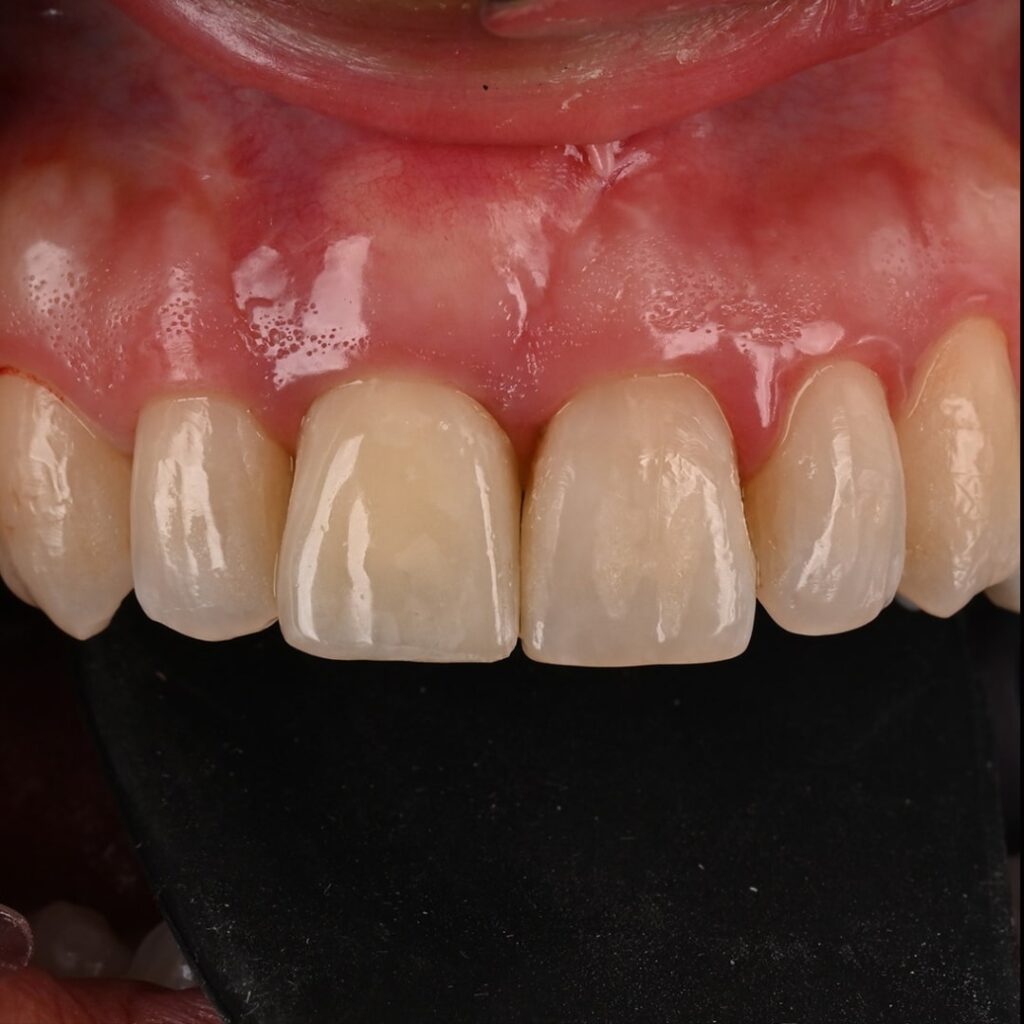
When is oral surgery required?

Impacted wisdom teeth: Wisdom teeth that are partially erupted, misaligned, or trapped under the gumline often require surgical extraction to prevent pain, infection, or damage to surrounding teeth.
Severely damaged or decayed teeth: When a tooth is too damaged for a filling, crown, or root canal to save it, surgical extraction may be necessary to prevent infection and further complications.
Dental implant placement: Oral surgery is recommended to place dental implants, which replace missing teeth by surgically anchoring titanium posts into the jawbone, offering a stable and long-lasting solution for tooth replacement.
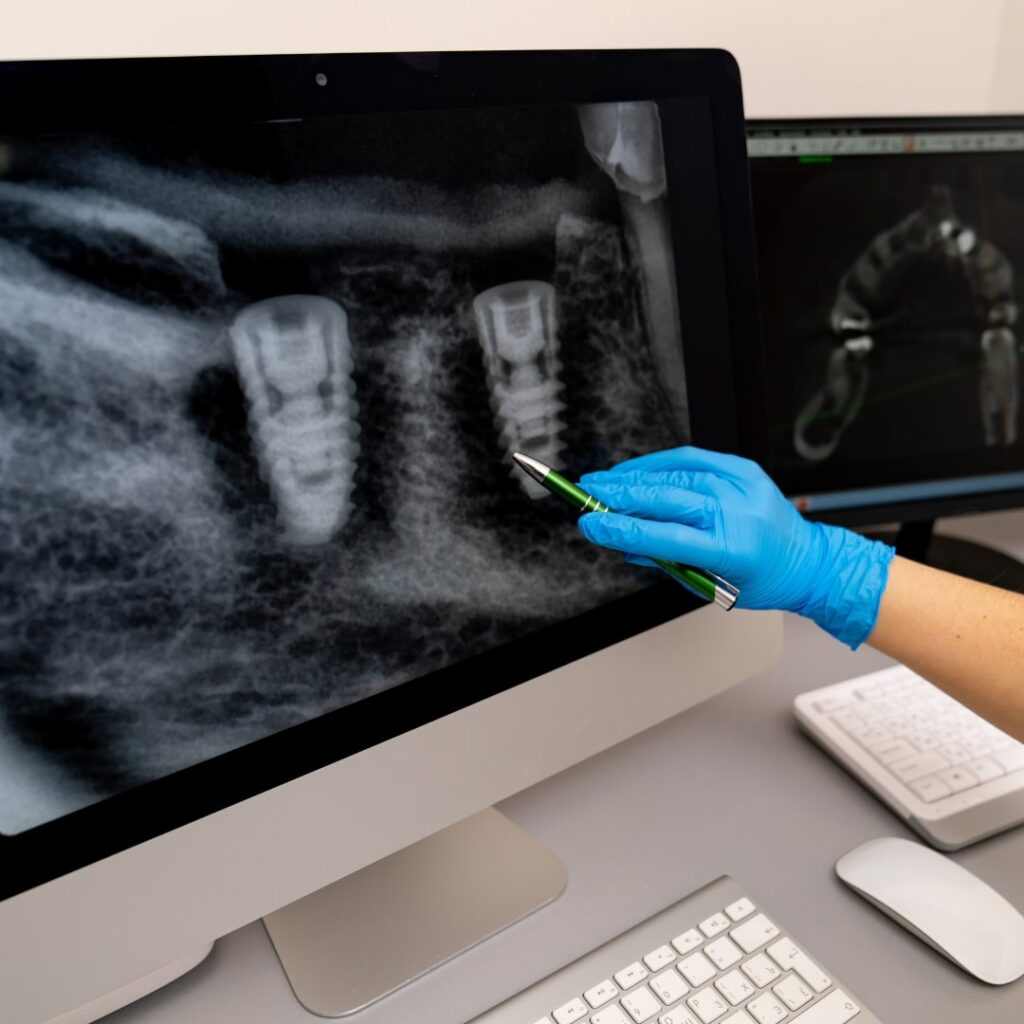
Bone grafting: In cases of bone loss due to missing teeth, gum disease, or injury, bone grafting surgery is advised to rebuild the jawbone, especially in preparation for dental implants.
Jaw alignment issues (orthognathic surgery): For patients with misaligned jaws or bite problems that cannot be corrected with orthodontics alone, oral surgery is recommended to reposition the jaw, improving both function and appearance.
Sleep apnea treatment: In cases where non-surgical treatments like CPAP machines or oral appliances are ineffective, oral surgery may be recommended to remove excess tissue or reposition the jaw, helping to open the airway and reduce sleep apnea symptoms.
Facial trauma repair: Oral surgery is often necessary to repair fractures or injuries to the face and jaw following trauma, restoring both function and appearance.
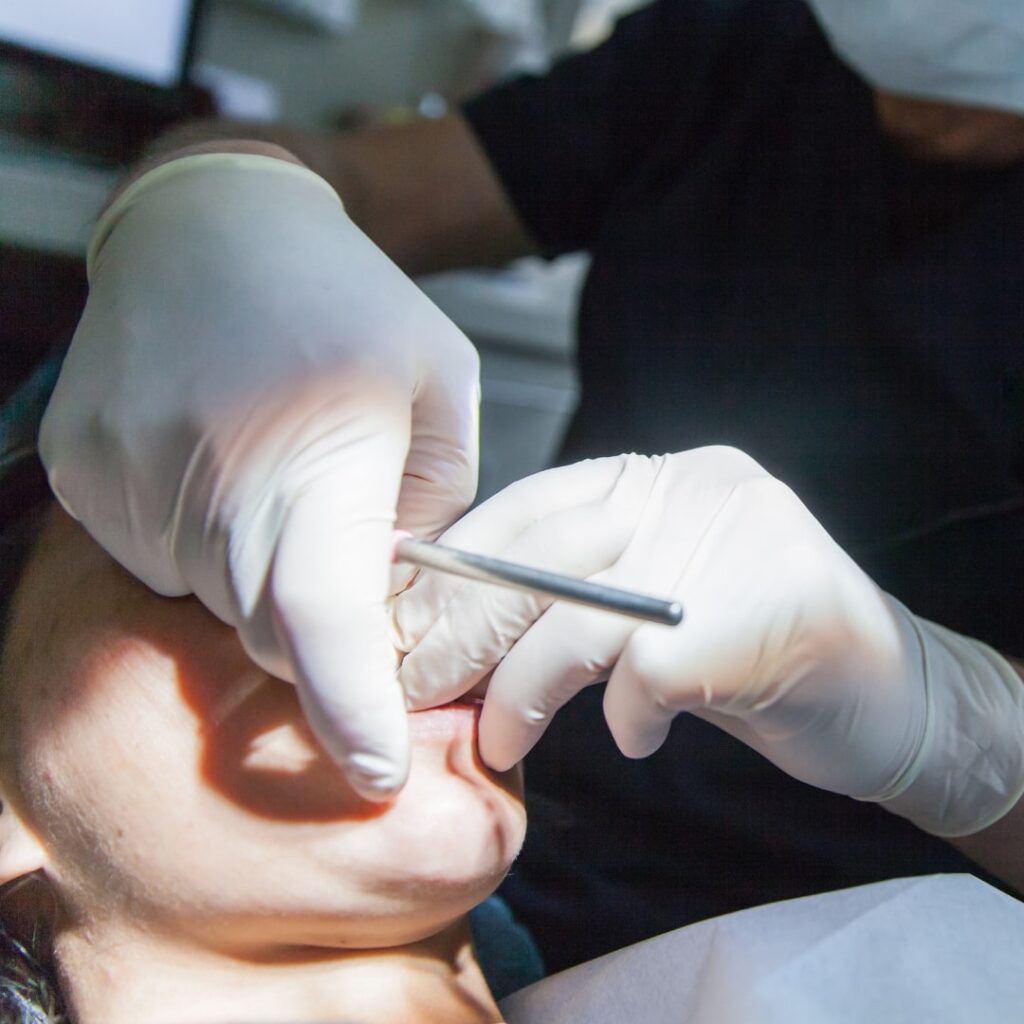
Treatment for severe gum disease: In advanced stages of periodontal disease, surgical procedures such as flap surgery or bone grafting may be required to remove infected tissue, reduce pocket depth, and restore gum and bone health.
Temporomandibular joint (TMJ) disorders: For patients with chronic jaw pain or limited jaw movement due to TMJ disorders, surgery may be recommended to repair or replace the affected joint, improving comfort and functionality.
Oral surgery is recommended when more conservative treatments cannot resolve a condition, ensuring that patients maintain proper oral function, prevent further complications, and restore their overall dental health. These procedures provide long-term solutions for a variety of dental and jaw issues, enhancing both health and quality of life.

